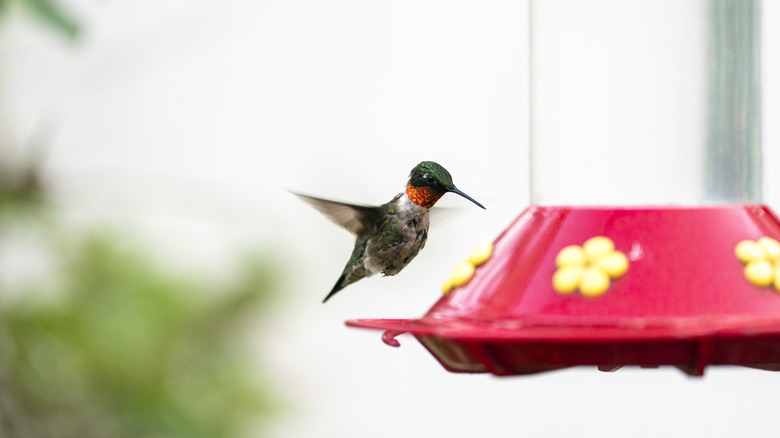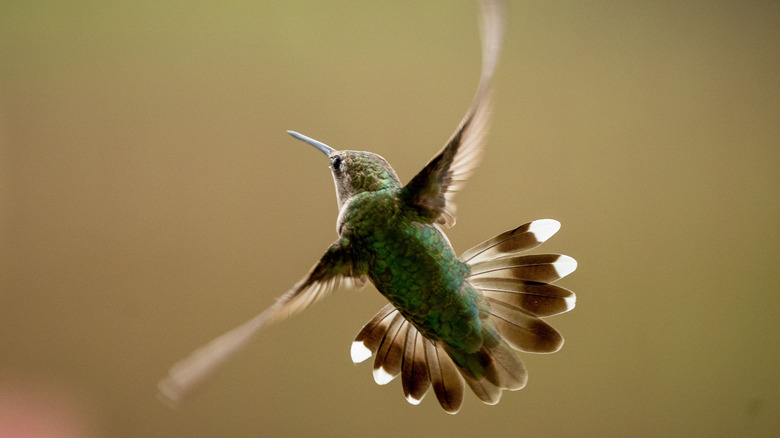Why You Might See Fewer Hummingbirds At Your Feeders In Midsummer
The spring and summer months are an exciting time for hummingbird watchers. These stunning birds flock to feeders after the weather has warmed up, making it easy to catch them fueling up in your yard or garden. However, by midsummer, you might notice a decrease in hummingbird sightings. This may cause you to worry about whether you made an error with your feeder or nectar supply. Fear not, because there are many reasons why you might see fewer of these feathered friends in midsummer, and none of them have to do with your feeder at all. First, some hummers begin migrating during summer, so if you live in a colder climate, you may see fewer birds. Second, during nesting season, male hummingbirds are more territorial towards other male counterparts, while females are busy caring for their young. Finally, these birds may also simply focus more on other sources of food during this time.
All in all, these fascinating aspects of hummingbird behavior are not a cause for concern, and you do not have to panic or take down your hummingbird feeder in the middle of summer. Instead, keep your feeders up for the hummers that may still visit your yard, even if there are fewer than normal. Additionally, rest assured that you will see them at your feeder once again. In fact, female birds often use feeders to train their babies to obtain food for themselves. Birds that migrated ahead of the winter season will also make their way back by spring.
Migration, nesting, and natural food sources drive hummingbirds away
The first reason why you may see fewer hummingbirds at your feeder is because some begin migrating during midsummer. If you're in a colder climate, the birds may simply be starting their trek to warmer weather. For instance, rufous hummingbirds that live in cold weather may begin to make their way south at the end of June. If possible, try to identify the species of hummingbirds that frequent your feeder so that you can research their migration patterns and know when you can expect to see less birds.
Furthermore, male hummingbirds are known to be territorial, and this trait is heightened during nesting season. This behavior is part of their survival instincts. Out in the wild, there is a limited supply of nectar available in flowers at a time. As a result, hummingbirds tend to guard food sources they claim as their own, and this may happen to your feeder. You will also notice fewer female birds because they must incubate their eggs during nesting, so they have less time to visit your feeder.
Hummers also often transition away from feeders to rely on flowers for food after their eggs hatch. This is because they feed their nestlings protein-rich insects that are found in flowers. Unfortunately, your bird feeder is not an adequate source of these vital nutrients. If you want to see more hummers, you could try planting flowers that hummingbirds absolutely love.

